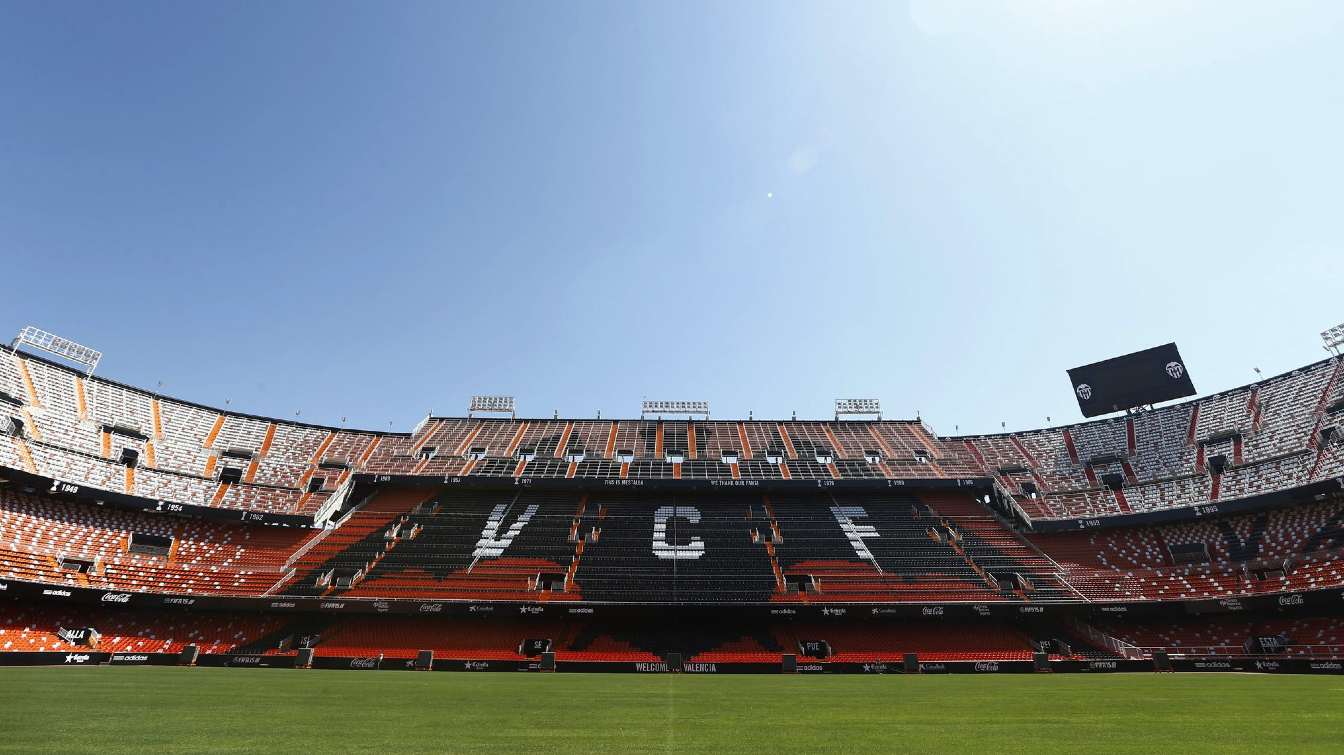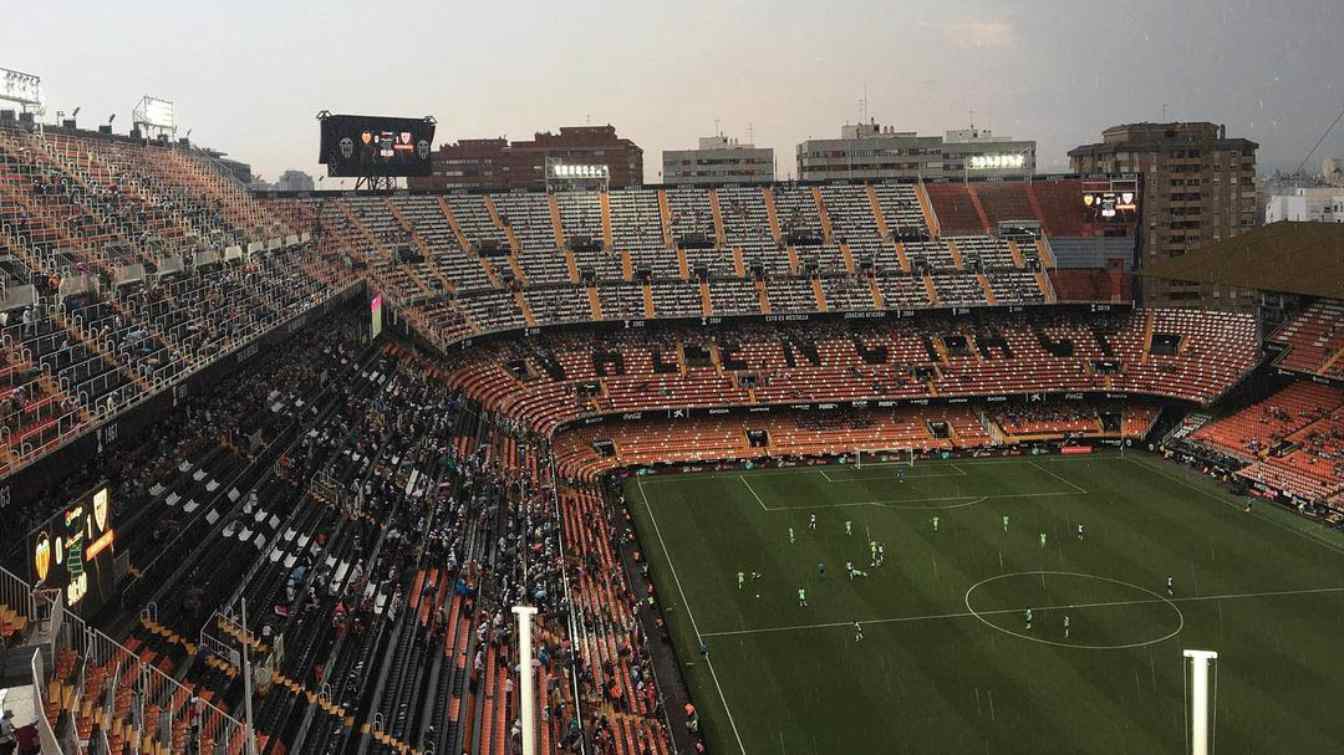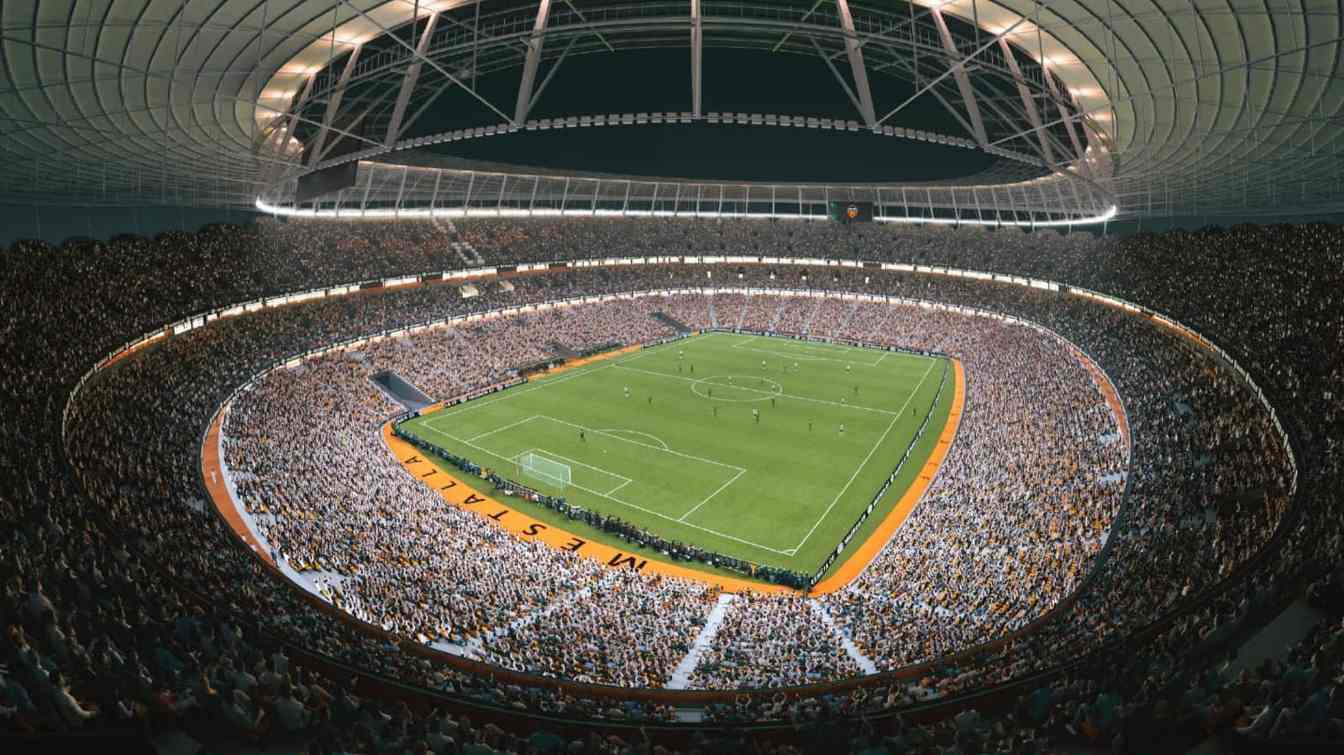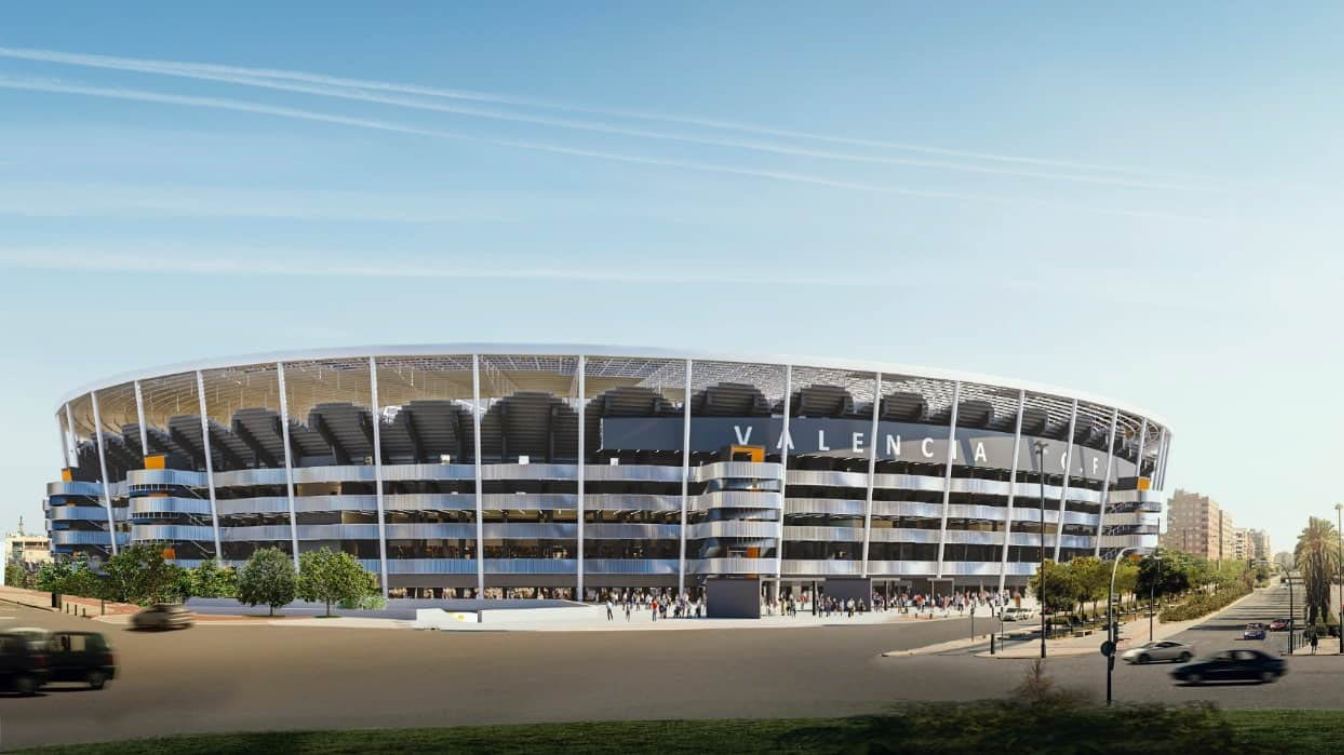Spain: Cheaper and faster. Modernisation of Mestalla in figures
source: StadiumDB.com; author: Paulina Skóra
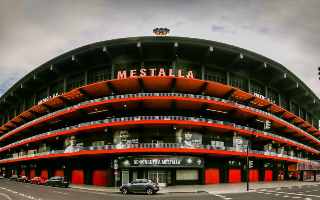 An event held at the Col·legi d'Arquitectes de València brought together five leading experts in economics, architecture, and financial law to highlight the shortcomings they see in the project for Valencia’s new stadium.
An event held at the Col·legi d'Arquitectes de València brought together five leading experts in economics, architecture, and financial law to highlight the shortcomings they see in the project for Valencia’s new stadium.
Advertisement
Outdated and ill-suited structure
The experts detailed the technical and financial implications of the club’s proposed project, emphasizing significant deficiencies in the design of the new stadium. According to their analysis, the existing structure shows clear signs of deterioration due to years of neglect, posing not only technical challenges but also a significant increase in completion costs. Their conclusions highlight various technical and structural flaws in the evaluated project, describing it as “provisional” with major ambiguities and technical deficiencies that render it unfit for proper execution.
Additionally, they pointed out that the calculations for the stadium’s roof construction do not meet regulatory standards and must be revised to account for a 100-year lifespan. Similarly, the assessments of the concrete structure, including its current state, fail to comply with prevailing regulations. This necessitates recalibrating the entire structure to meet the requirements of the Construction Code (CodE), addressing aspects such as concrete type, reliability, and durability. Severe durability issues, including corrosion, extensive cracking, and inadequate coatings, were also identified.
Before any construction can proceed, the experts demanded a comprehensive assessment of the structure's condition, including necessary tests, analysis of degradation levels, and an economic evaluation. They also noted the absence of a mandatory maintenance plan under CodE regulations. Furthermore, they stressed the importance of robust technical oversight by city engineers to ensure regulatory compliance and structural safety for the project.
Unrealistic club estimates
The experts also argued that the budget presented by the club for completing the project is unrealistic.
The official budget estimates €201 million (including overhead costs), but the experts’ calculations raise this figure to over €300 million at a minimum, with projections potentially exceeding €400 million.
Such figures, they explained, place the club in an unfeasible financial situation, jeopardizing its long-term economic stability: These values make the Nou Mestalla project unrealistic when compared to other clubs building new stadiums: €6,748/seat compared to €4,500/seat for Metropolitano or San Mamés.
An alternative? Modernizing the "old" Mestalla
As a viable alternative, the experts proposed modernizing the current Mestalla stadium. They asserted that Mestalla has a solid and adaptable foundation for necessary renovations, with structural spaces like Grada de la Mar already offering 6,000 square meters and towers designed to support modern roofing systems.
The estimated budget for a comprehensive renovation of Mestalla would be €113.4 million, including a 20% contingency for potential additional costs, making it a highly competitive option. The cost per renovated seat would be €2,200, comparable to similar projects such as Reale Arena (€2,500) or La Rosaleda (€2,500) and significantly lower than the €6,748/seat for Nou Mestalla. In essence, renovating the historic stadium would cost half the amount needed to finish the new stadium under the official budget and one-third compared to the experts' estimates. For every €1 invested in modernizing Mestalla, €3 would be required to complete Nou Mestalla. Renovating the current stadium ensures efficient resource use, avoids debt, and guarantees a modern, competitive 50,000-seat venue.
Beyond financial benefits, the experts highlighted strategic advantages of renovating Mestalla: its symbolic and emotional value, as the stadium is an icon for fans and a unique aspect of the club's identity; its prime location close to the city center, making it one of the most attractive tourist destinations; and its excellent accessibility, with easier access by foot and public transportation.
The city and the club categorically reject the idea of staying at Mestalla
However, the Valencia City Council and Valencia CF do not consider staying at the Mestalla stadium. Furthermore, they have not even commented on the conference organized by a group of architects, engineers, and economists on this topic. Their sole focus is the construction of the new stadium and the resumption of work in January. Both the club and the city authorities are focused on preparations to resume the Nou Mestalla project during the week of January 13, as scheduled.
Both institutions maintain that the project was prepared in compliance with the law and have stated that the technical teams, the same ones who approved the documentation a year ago under the previous administration, still consider it to comply with current regulations. At the same time, Valencia CF and the City Council expressed surprise at the organization of the conference at the College of Architects, especially since the project, presented and approved on October 11, was also stamped and endorsed by the same college. They view this as contradictory, as some architects are now questioning the technical feasibility of the project.
Advertisement
 StadiumDB
StadiumDB